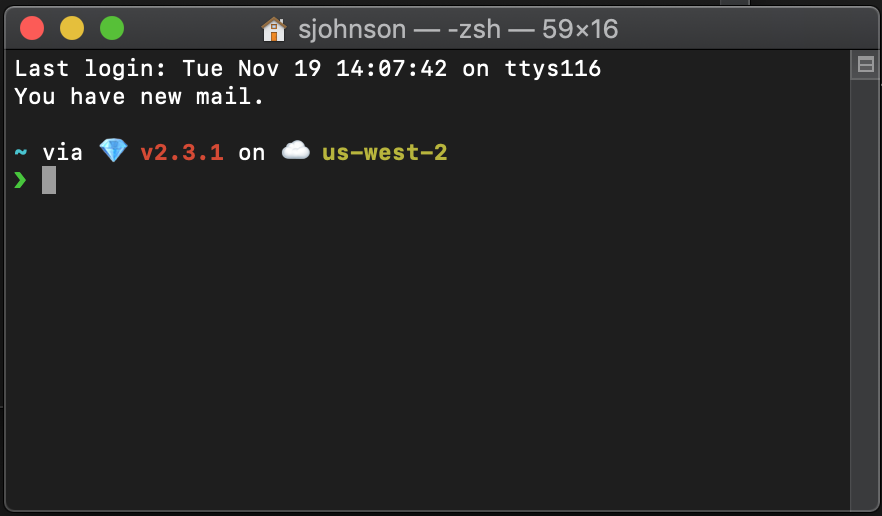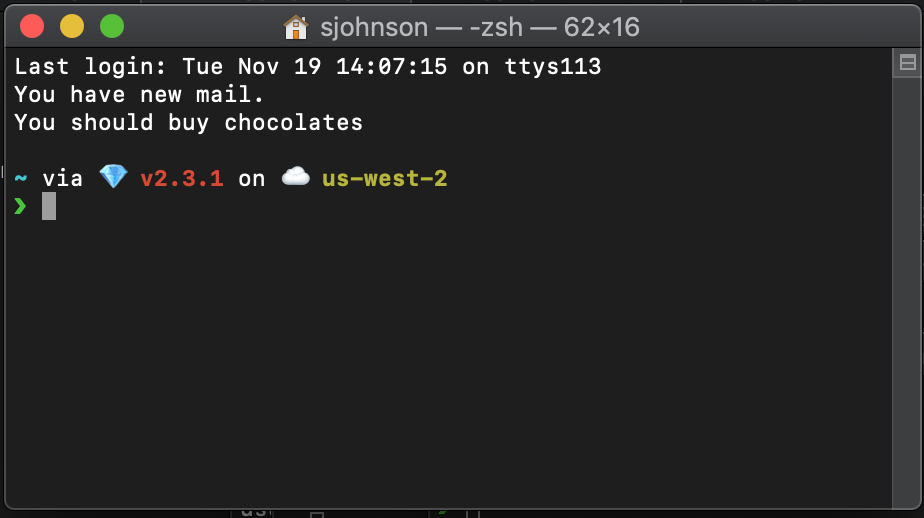Do I Buy My Wife Flowers Tonight or Not

Like a lot of software developers, I can be pretty forgetful at times. If you're in the industry, you know how it goes:
- You start working on a project and it is February
- You look up and … it is May and
- You don't remember all that much of your life between
A good friend of mine refers to this as falling down a code hole (Thank you Mister Mott) and it really is a thing. Some people's code holes are a few days long. Other people's code holes can, in the case of a death march, last for months.
A bunch of years ago, I came out of a code hole and realized that I couldn't remember when I had last bought my wife flowers (if your wife doesn't like flowers then substitute chocolates, wine, etc). Any husband worth his salt knows what I mean – that little treat that says to the person you love that you remember their existence and they matter. I regard that for my personal relationships, buying a woman flowers unexpectedly as akin to lubrication on a mechanical device; something that makes the underlying machine work better. Call if "relationship lubrication" if you will.
After realizing this, I thought about how I could solve it – in a natural fashion. I didn't want to put it on a calendar; I didn't want it to be regular so I realized that I could tie it to:
- Something I did regularly
- Make it quasi random
Since I've an old school Unix guy (originally SunOS back in '89 on a Sun 3 running Qunitus Prolog), what I did was tie this to my shell startup routine:
- For non computer folks, a "shell" is a program you use to interface directly with the machine
- A startup routine is a script which runs when the shell starts up
- As a heavy terminal user, I open a shell 10 or 20 times a day so, over time, I adjusted the probabilities to reflect that.
What I did was write a "throw of the dice routine" that randomly tells me whether or not to buy flowers. This can be as complex as you want it to be. I made the example below a little complex and tied in a "on her birthday" routine just in case.
Here's what this looks like when the throw of the dice doesn't succeed:

Here's what this looks like when it does succeed:

Here's the code:
#!/Users/sjohnson/.rvm/rubies/ruby-2.3.1/bin/ruby
require 'date'
things_to_buy = ['flowers', 'wine', 'chocolates', 'card']
# raise this if you want to buy things less often; lower it for more
improbability_constant = 5
birthday = Date.new(1968,9,11)
improbability_constant.times do
things_to_buy << nil
end
thing_to_buy = things_to_buy.sample
if thing_to_buy
puts "You should buy #{thing_to_buy}"
elsif Date.today.month == birthday.month && Date.today == birthday.year
puts "Doofus - it is her birthday; buy at least: #{thing_to_buy.compact.join(',')}"
end
I call this from ~/.zshrc just by calling the ruby script directly. The same trick works in ~/.bashrc.
I should admit that a lot of times when this said "Buy Flowers", I actually didn't – life can be messy and complex and I never intended it directly drive my behavior. What it did do, however, was make me much more aware of the need for this.
Note 1: I haven't needed this now for a lot of years so below is a quick reproduction designed to select between flowers, wine, chocolates and a card. Once I ran it for enough years, I internalized this type of activity as a habit. And then I moved laptops one year and realized "Heh. I changed!".
Note 2: I told my wife about this a few weeks ago and she laughed. Oh gosh did she laugh …
Note 3: While my personal relationship involves a wife and husband, this tool can work regardless of the gender or configuration of your relationship.
Posted In: #relationships